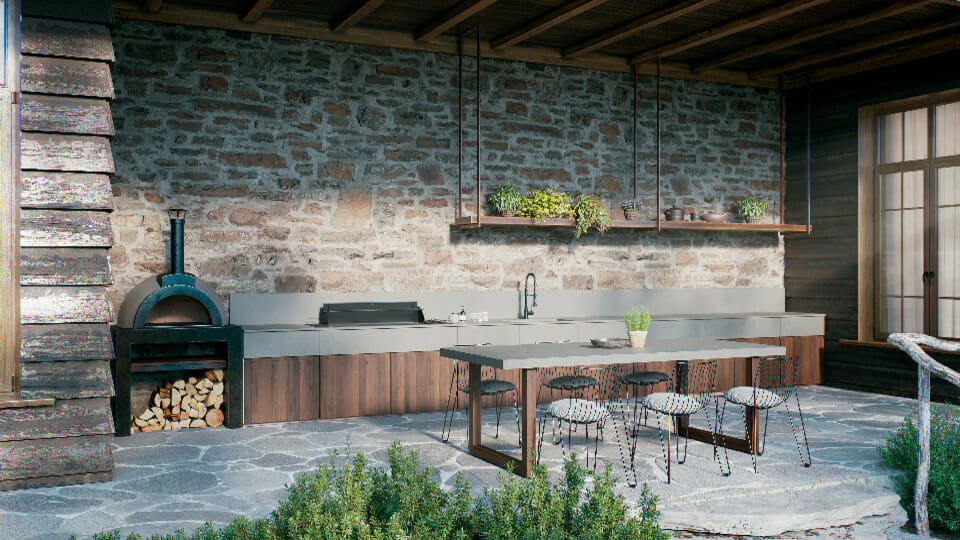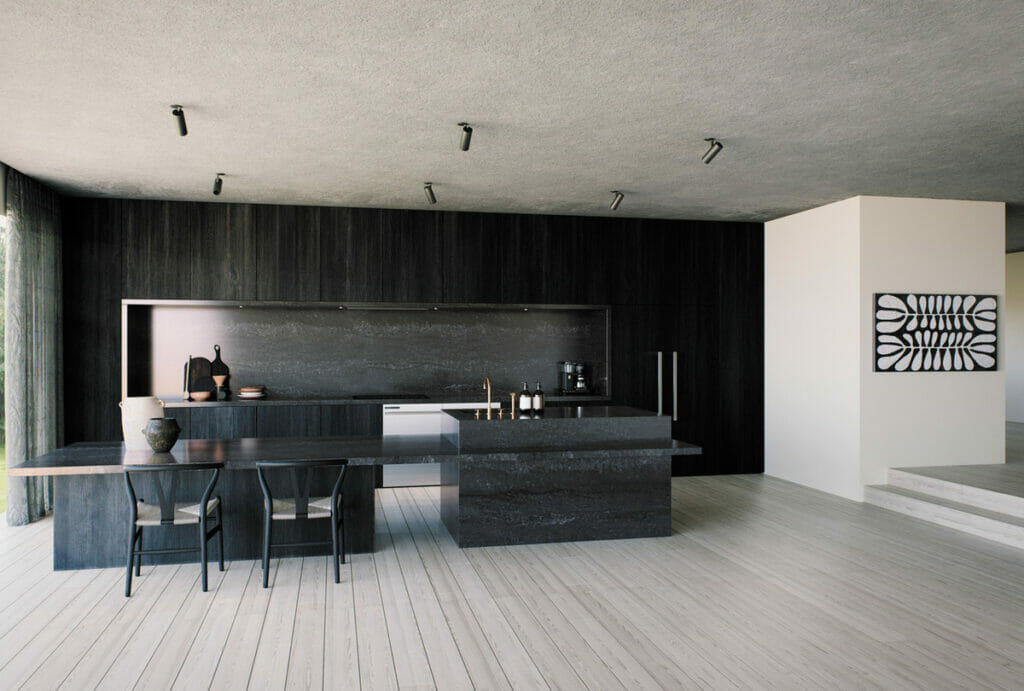What is the Effect of Oven Cleaner on Kitchen Countertops?
4 min read
Ovens are susceptible to grease build-up. Without regular cleaning, homeowners may discover a heavily crusted layer of grease that’s often impossible to remove with regular cleaners.
This is when oven cleaners become necessary to take off very stubborn grime. Oven cleaners are easy to use without the need for excessive scrubbing. Just spray, wait, and wipe clean.
While these cleaners are excellent for the oven, it is not recommended to use these harsh cleaners on the quartz countertops.

So, what does oven cleaner do to countertops?
Here are some of the effects of an oven cleaner on a countertop:
Many oven cleaners contain harsh cleaning chemicals. Manufacturers will explicitly label them as corrosive in big, bold letters and any overspray of these chemicals can even irritate the skin.
Why are these products safe to use in ovens? Most ovens typically use stainless steel with a coating of acrylic enamel. This enamel forms a hard shell over the metal that provides an added layer of protection from chemical fumes and spills.
Your quartz countertop is not entirely fragile. Quartz, as a mineral, is naturally very resistant to chemicals and does not react with most acids at ordinary temperatures. But quartz countertops are engineered stones. The polymers that bind the quartz together can react to heat or harsh chemicals.
So, what does oven cleaner do to countertops? The resins and polymers used to manufacture quartz may react slightly with the chemicals used in oven cleaners. When shopping for an oven cleaner, check the warning label on the back of the bottle. The warning label on Goo Gone Oven and Grill clearly states that any overspray to painted walls, marble, and aluminium should be wiped off immediately.
For an oven cleaner to cut through the grease, it must soak into the surface for 3 to 10 minutes. This is more than enough time for the oven cleaner to react with the polymers in the quartz.
Chemical reactions may result in white marks, blotches, and dull spots that can be highly visible on light-coloured quartz countertops. Removing the effects of a permanent chemical reaction with stain removers or rubbing alcohol can be difficult.
Using an oven cleaner on your kitchen countertop is likely to leave streaks of grease, food residue, and other grime.
Quartz countertops are non-porous, which makes the surface highly resistant to staining but it’s not entirely stain-proof.
You may not see any visible changes in the quartz countertop the first time you use an oven cleaner to do a quick wipe down. But continuous use of aggressive cleaners will gradually strip the surface and may result in fading or staining.

Oven cleaners may be harmful to your health
The harsh chemicals found in an oven cleaner produce fumes. Manufacturers are now producing fume-free oven cleaners, but some customers still experience the presence of fumes. Regularly using a heavy-duty oven cleaner on kitchen countertops could have a negative impact on your indoor air quality.
Is it okay to use oven cleaners on granite countertops?
Unlike quartz, granite is a natural stone. There are no polymer resins that may react with harsh chemicals. However, it is not advised to use an oven cleaner on granite because it has a thin layer of sealant on the surface.
Continuous use may strip off the layer and tarnish the stone. The granite could start to absorb liquids and become stained.
Can an oven cleaner be used to clean marble countertops?
Marble countertops are often sealed, and their protective layer also gives them a distinct shine. The harsh chemical in the oven cleaner can damage the coating. This advice also applies to other countertops, including tiles with glazed layers or painted wooden countertops.
Alternatives to oven cleaner on countertops
You may be compelled to use an oven cleaner because of a tough stain or grease that is hard to remove, and an oven cleaner is guaranteed to cut through all that and more. Fortunately, there are safer but still powerful alternatives to consider that are much more reliable for spot cleaning on a case-by-case basis.
Bottom line
Taking care of your natural stone or engineered quartz countertop will ensure a long-lasting surface. Be very careful when using acidic cleaners, oven cleaners, abrasive cleaners, or even dry washing detergents. Quartz doesn’t need a lot of maintenance as long as spills are cleaned off promptly and gentle cleaning methods are used.
{{ subtitle }}
{{ i.desc }}
{{ subtitle }}
{{ subtitle }}